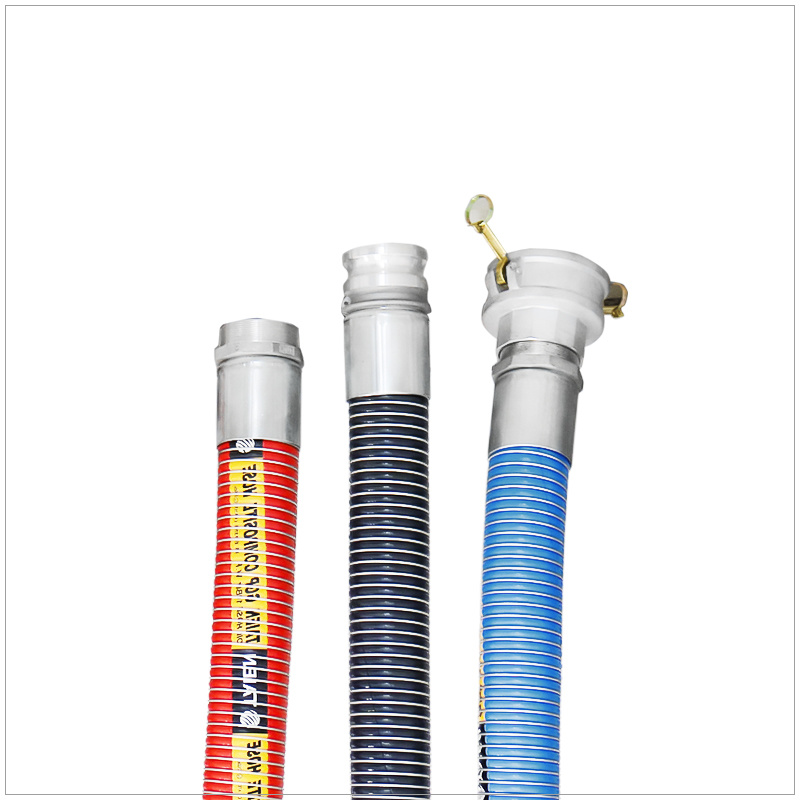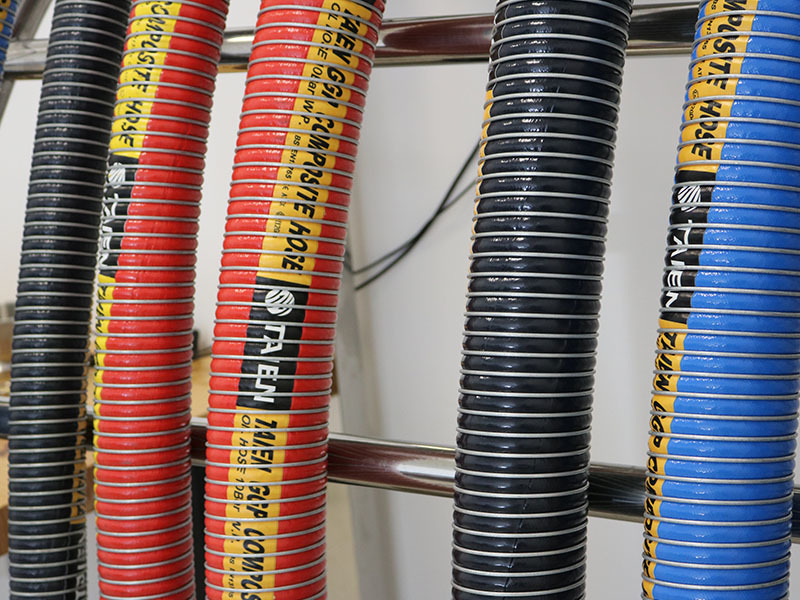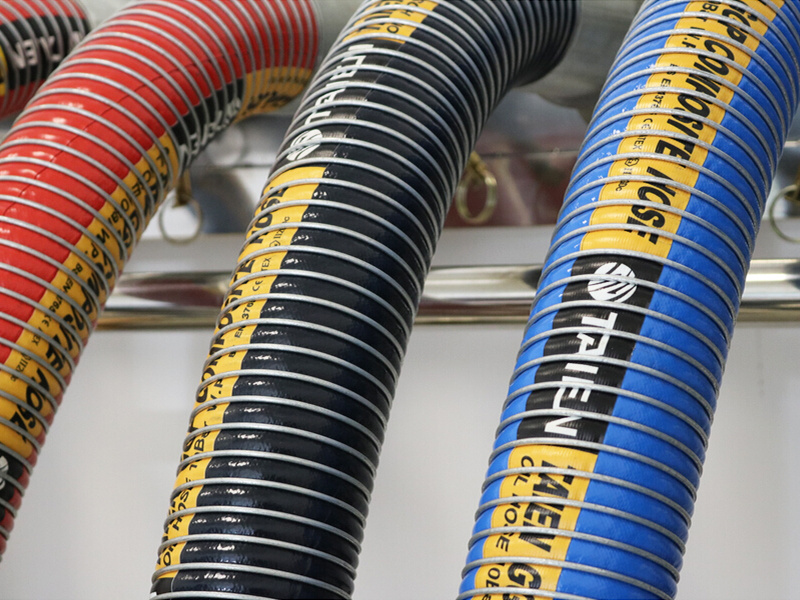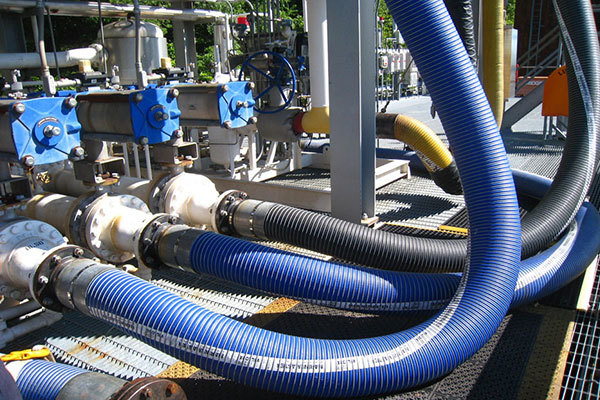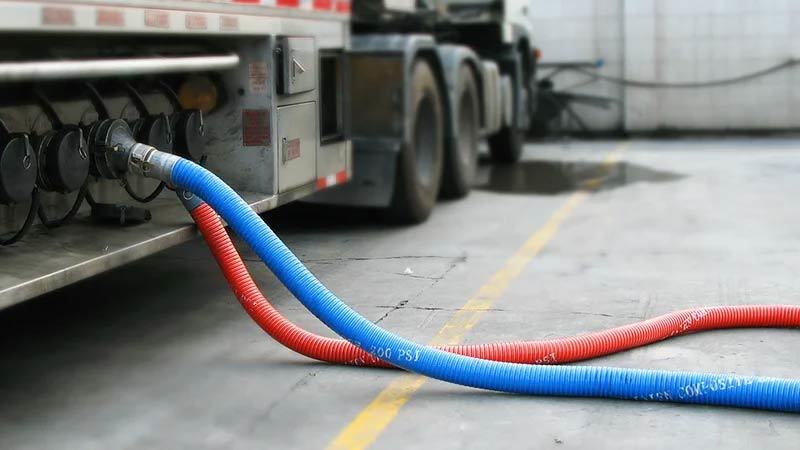The Environmental Benefits of Using Marine Hose in Your Equipment
Release time:
2025-05-29
Author:
Source:
Abstract
The Environmental Benefits of Using Marine Hose in Your Equipment
Understanding Marine Hose and Its Applications
Marine hoses are essential components used in various marine and industrial applications. They are designed to transport fluids, ranging from water and oil to chemicals and other hazardous materials. Constructed to withstand harsh marine conditions, these hoses are engineered for durabi
The Environmental Benefits of Using Marine Hose in Your Equipment
Understanding Marine Hose and Its Applications
Marine hoses are essential components used in various marine and industrial applications. They are designed to transport fluids, ranging from water and oil to chemicals and other hazardous materials. Constructed to withstand harsh marine conditions, these hoses are engineered for durability, flexibility, and resistance to abrasion, UV light, and saltwater. But beyond their performance, marine hoses also offer significant environmental benefits that make them an excellent choice for eco-conscious businesses.
The Importance of Sustainable Equipment Choices
As environmental concerns continue to rise, industries are increasingly seeking sustainable solutions for their operations. Choosing the right equipment is crucial for minimizing impact on the planet. Marine hoses stand out as an eco-friendly option due to their manufacturing processes, materials, and overall efficiency. This article delves into the various environmental benefits of using marine hoses, providing a comprehensive understanding of how they contribute to sustainability.
1. Reduced Resource Consumption
One of the significant environmental benefits of marine hoses is their ability to reduce resource consumption. Traditional hoses often require frequent replacements due to wear and tear, leading to increased material use and waste. In contrast, marine hoses are built with high-quality materials that ensure longer lifespans. This longevity reduces the need for constant replacement, thus conserving resources and minimizing waste.
2. Lower Environmental Impact During Manufacturing
The manufacturing process of marine hoses is designed with sustainability in mind. Manufacturers often utilize eco-friendly materials and practices, such as recycling and energy-efficient production methods. By minimizing the carbon footprint associated with production, marine hoses contribute to a more sustainable industry. When compared to conventional hoses, marine hoses can significantly lower greenhouse gas emissions.
3. Enhanced Durability and Performance
Marine hoses are engineered to endure extreme conditions, making them less likely to fail during use. This durability translates into fewer leaks and spills, which can be detrimental to the environment. By providing reliable fluid transfer without compromising performance, marine hoses help prevent accidental discharges that could harm marine ecosystems.
3.1 Resistance to Chemicals and Abrasion
The construction of marine hoses allows them to resist various chemicals and abrasions, further enhancing their environmental benefits. This resilience not only extends the lifespan of the hoses but also ensures that harmful substances do not leach into the environment. As a result, marine hoses play a crucial role in safeguarding water quality and protecting marine life.
3.2 Flexible Design for Multiple Applications
Marine hoses are versatile and designed for a wide range of applications, including oil transfer, sewage transport, and chemical handling. Their flexibility allows for easy installation and use in numerous environments. This adaptability reduces the need for multiple types of hoses, simplifying inventory management and minimizing waste.
4. Energy Efficiency in Fluid Transport
Energy efficiency is a critical consideration in any operation. Marine hoses are designed to facilitate smooth fluid transfer, reducing the energy required for pumping. This efficiency leads to lower energy consumption, which, in turn, decreases the overall environmental impact. By minimizing energy usage, marine hoses contribute to a more sustainable approach to fluid handling.
4.1 Improved Flow Rates
Marine hoses are engineered to optimize flow rates, ensuring that fluids move efficiently through the system. Enhanced flow rates minimize the energy needed for pumping, further supporting eco-friendly operations. By choosing marine hoses, businesses can achieve operational efficiency while also reducing their carbon footprint.
5. Minimizing Pollution and Environmental Hazards
Accidental spills and leaks pose significant threats to the environment, particularly in marine settings. Marine hoses help mitigate these risks by providing a reliable and secure means of fluid transfer. Their robust construction minimizes the likelihood of leaks, ensuring that harmful substances remain contained and do not contaminate surrounding ecosystems.
5.1 Spill Containment Features
Many marine hoses are equipped with spill containment features, further enhancing their environmental benefits. These hoses are designed to prevent spills from occurring during transport, providing an additional layer of protection for the environment. By utilizing marine hoses with spill containment capabilities, businesses can take proactive steps to safeguard natural resources.
6. Encouraging Responsible Disposal Practices
When the time comes to replace marine hoses, proper disposal practices are essential for minimizing environmental impact. Many manufacturers offer recycling programs for their products, allowing businesses to dispose of old hoses responsibly. By participating in these programs, companies can contribute to a circular economy and reduce waste in landfills.
6.1 Educating Employees on Disposal Methods
Incorporating education about responsible disposal practices into employee training is vital. By informing staff about the importance of recycling and proper disposal methods, businesses can foster a culture of sustainability. This commitment to responsible practices further amplifies the environmental benefits of using marine hoses.
7. Contributing to Regulatory Compliance
As environmental regulations become increasingly stringent, businesses must ensure they comply with local and international standards. Marine hoses are often designed to meet or exceed these regulations, reducing the risk of non-compliance penalties. By using equipment that adheres to regulatory requirements, businesses can demonstrate their commitment to environmental responsibility.
7.1 Staying Ahead of Industry Standards
By choosing marine hoses, companies can stay ahead of industry standards and anticipate future regulations. This proactive approach not only enhances their reputation but also positions them as leaders in sustainability within their sector.
Frequently Asked Questions (FAQs)
1. What types of fluids can marine hoses transport?
Marine hoses are designed to handle a wide variety of fluids, including water, oil, chemicals, and sewage. Their construction allows them to withstand the specific conditions of each application.
2. How do I know if a marine hose is suitable for my application?
To determine if a marine hose is suitable for your application, consider factors such as the type of fluid being transported, temperature, pressure, and environmental conditions. Consult with manufacturers or suppliers for expert advice.
3. Are marine hoses recyclable?
Many marine hoses can be recycled, and some manufacturers offer recycling programs for their products. Check with your supplier for specific recycling options available in your region.
4. How can marine hoses help reduce my business's carbon footprint?
Marine hoses contribute to reduced carbon footprints by enhancing energy efficiency, minimizing leaks and spills, and promoting responsible disposal practices. Their durability also reduces the frequency of replacements, further conserving resources.
5. What should I consider when selecting marine hoses for my equipment?
When selecting marine hoses, consider factors such as the types of fluids being transported, compatibility with chemicals, pressure and temperature ratings, and the specific environmental conditions of your operation.
Conclusion
In conclusion, the environmental benefits of using marine hoses in your equipment are substantial. From reducing resource consumption and promoting energy efficiency to minimizing pollution and ensuring regulatory compliance, marine hoses stand out as a sustainable choice for various applications. By investing in high-quality marine hoses, businesses can enhance their operational efficiency while demonstrating a commitment to environmental responsibility. As the world moves toward a greener future, making informed equipment choices will be crucial in preserving our planet for generations to come.
Recommended Reading








